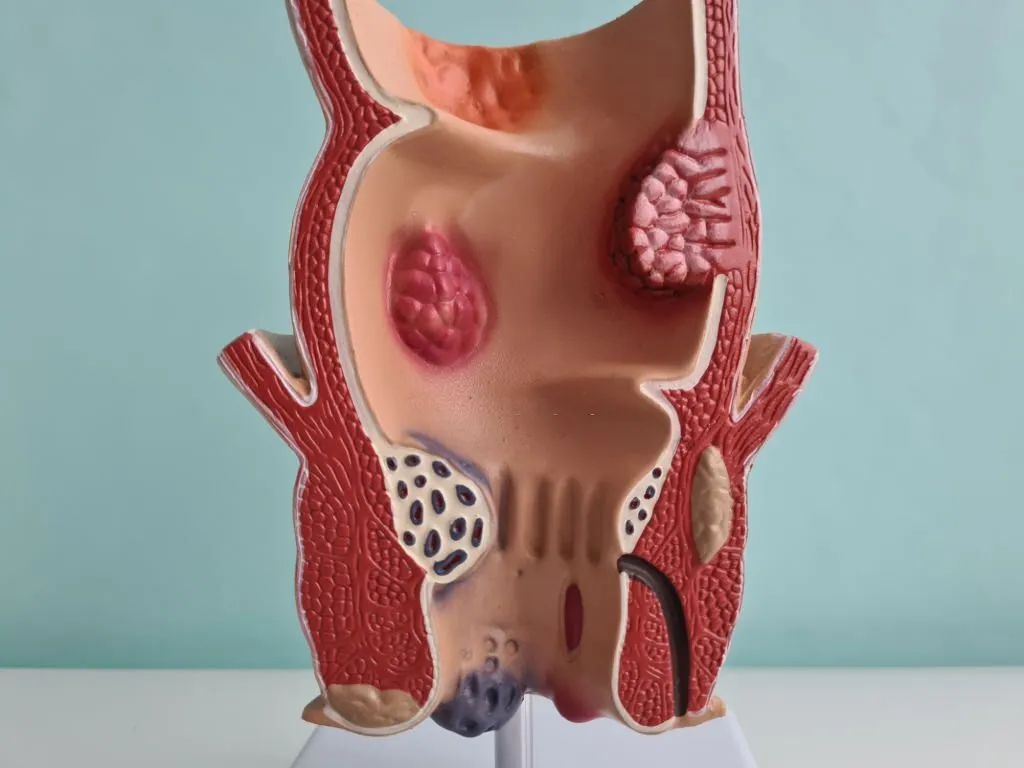A fistula is an abnormal connection between two body tissues. They can be caused by injury, swelling, or infection. Though surgery is beneficial in preventing the recurrence of fistulas, non-surgical fistula treatment can be employed in milder stages of fistulas. Non-surgical fistula treatments are simple, less invasive and have shorter recovery times. However, with modern surgical interventions requiring only a day’s hospital admission, both can help you overcome the stressful symptoms of fistulas. Read on to know more about the stages of fistulas, non-surgical fistula treatments, and the advantages of both surgical and non-surgical fistula treatment options.
How are Fistulas Classified and What are Their Treatment Options?
To decide whether you require surgical or non-surgical treatment for your fistula, you need to understand the classification of fistula. Anorectal fistulas are classified as given below.
- Intersphincteric fistula
This fistula affects the internal sphincter (a ring of muscle to close an opening) of the anus. However, it does not affect the external sphincter. Non-surgical treatment options can be considered in this stage if no abscess (accumulation of pus in body tissue) is present.
- Transphincteric fistula
Here, the fistula affects both the external and internal sphincters. Both surgical and non-surgical the presence of an abscess.
- Suprasphincteric fistula
Here, the fistula affects both the sphincters and also the skin between your genitals and anus (called the perineum). Fistula surgery is advised in this stage of fistula.
- Extrasphincteric fistula
In this rare stage, the fistula affects both the sphincters, the rectum and the perineum. You will require fistula surgical procedures for this stage.
What are some non-surgical fistula treatment options?
Based on the stage of your fistula, you can opt for several non-surgical treatment options for managing your fistulas, as discussed below.
- Medications: Medications like antibiotics may be advised to combat infection associated with the abscess formation. In some cases, immunosuppressive drugs may be prescribed to treat fistulas caused by inflammatory conditions.
- Seton placement: A seton (thin silicone string) is a non-surgical fistula treatment In this, a seton is placed into the fistula to help drain the fistula. It, being an outpatient procedure, is less invasive and allows you to resume your normal activities quickly.
- Bioprosthetic plugs: In uncomplicated fistulas, a cone-shaped plug made of animal tissue may be used to block the opening of the fistula. It is a safe non-surgical fistula treatment that is minimally invasive.
- Fibrin glue: In this non-surgical treatment for fistula, glue is injected into the fistula. This helps in sealing it and promotes its healing. However, the results may not be long-lasting.
- Endoscopic ablation– In this non-surgical fistula treatment option, an electrode is passed through an endoscope (an instrument that can view internal parts of the body).
- Alternative therapies and home remedies: Alternative treatments like homeopathy, ayurveda, and home remedies have been used for treating fistulas. Home remedies like sitting in a warm bath (sitz bath), consuming a diet high in fibre, and drinking plenty of water can help you manage the symptoms of anal fistulas. However, these are useful when the fistula is of a small size. Larger, complicated fistulas require fistula surgery.
How do Non-surgical Treatment Options for Fistulas Compare to Surgical Interventions?
Though non-surgical fistula treatment options have several benefits, surgical options come with their advantages. These will be discussed below.
- Non-Invasiveness- Though non-surgical fistula treatment options are less invasive, surgical options can also be minimally invasive if laser and endoscopic procedures are employed.
- Recovery- Both surgical and non-surgical treatment options have similar recovery periods if minimally invasive surgeries like laser, ablation, endoscopic, and laparoscopic procedures are performed.
- Complications- Non-surgical fistula treatment options for fistulas have minimal complications as they are less invasive. Though surgical methods of treating fistulas have more complications, minimally invasive procedures reduce complications. Minimally invasive surgical procedures for fistula are completed on the same day and have a faster recovery period.
- Recurrence rate: When non-surgical fistula treatment like fibrin glue is used, the recurrence rate occurs after 16 months. Moreover, non-surgical methods do not lead to long-term treatment and relief and may require multiple procedures in the future. However, surgical treatment methods lead to long-term management with minimal recurrence unless they are complicated and recurrent fistulas.
Takeaway
Non-surgical fistula treatment options are beneficial if you are in the early stages of fistula. Though surgical treatment options may sound challenging, minimally invasive procedures can help overcome many of the complications otherwise seen when surgery is employed. Based on the classification of your fistula, your healthcare professional can be the best guide to advise you on which treatment option is the best for managing your fistula.
When looking for a permanent cure for your fistula, Smiles Hospital should be your go-to healthcare provider. Smiles Hospital has unique, comprehensive, and cutting-edge minimally invasive procedures for your fistula treatment.
Smile Hospital offers.
- The world’s first exclusive and integrated tertiary care for colorectal and digestive disorders.
- Offers a variety of minimally invasive surgeries for fistula treatment.
- More than 30,000 surgeries and more than 3,15,000 satisfied patients.
So, do not procrastinate. Get help now! Call 8099008800 to book an appointment or visit: www.gastroenterology.smileshospitals.com

